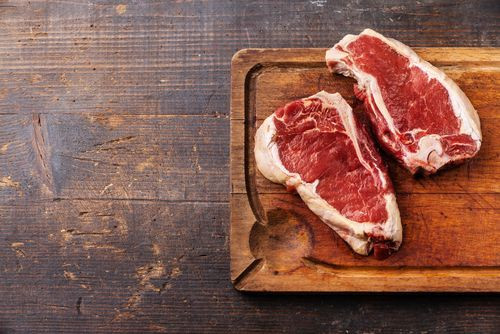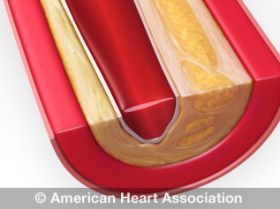Red Meat Endangers The Heart, But The Problem Starts In The Gut; Treating Heart Disease In The Stomach

One day the experts say red meat is bad for you, and the next they say it’s good. But new research from the Cleveland Clinic details exactly how your gut bacteria turn red meat into a risk for heart disease. There have been perhaps hundreds of studies performed on red meat up until this point, and although in some cases the villainizing can make the protein sound worse than it really is, this study published in Cell Metaoblism reinforces why moderation is key.
"The findings identify the pathways and participants involved more clearly, and help identify targets for therapies for interventions to block or prevent heart disease development," the study’s lead author Dr. Stanley Hazen, of Lerner Research Institute and the Miller Family Heart and Vascular Institute at Cleveland Clinic, said in a press release. "While this is into the future, the present studies may help us to develop an intervention that allows one to 'have their steak and eat it, too' with less concern for developing heart disease."
Hazen and his team traced the digestion of red meat and found the bacteria in our gut is doing some dangerous digestion. When L-carnitine, an abundant nutrient found in red meat, comes in contact with our gut, it transforms into trimethylamine-N-oxide (TMAO) and another substance called gamma-butyrobetaine. Both substances were found to cause atherosclerosis, which is the hardening and thickening of the arteries.
They were always suspicious of L-carnitine’s role in the body, but researchers found the gamma-butyrobetaine actually builds up 1,000 times faster than the formation of TMAO. When L-carnitine breaks down, it actually creates these two different digestion pathways, transformations, and at completely different rates. If they want to tackle new and effective heart disease treatments, scientists are going to have to design drugs to follow both pathways and treat them at different speeds. Red meat is a huge source of protein and necessary fats, but if you have heart disease in your genes, it’s best to moderate carefully — unless a drug could reduce plaque buildup by digesting it safely for you.

Imagine plaque buildup inside the arteries where your blood transports throughout your body. The plaque develops from cholesterol, fatty substances, cellular waste, and a clotting material known as fibrin. It makes it difficult for blood to flow through the artery in the heart, brain, pelvis, legs, arms, and even kidneys. Without healthy, proper blood flow, coronary heart disease, chronic kidney disease, and other cardiovascular conditions could arise and become life-threatening in time, according to the American Heart Association.
Relax — this doesn’t mean red meat is going to kill you. It just means that moderation is the absolute key to a long, health quality of life. Researchers can also use this new discovery to figure out how to treat people who already have atherosclerosis. They could, for example, block the signals from gut bacteria that convert the red meat nutrients into dangerous artery-hardening substances.
Source: Hazen SL, Koeth RA, Levison BS, Culley MK, Buffa JA, and Wang Z, et al. g-Butyrobetaine Is a Proatherogenic Intermediate in Gut Microbial Metabolism of L-Carnitine to TMAO. Cell Metabolism. 2014.



























